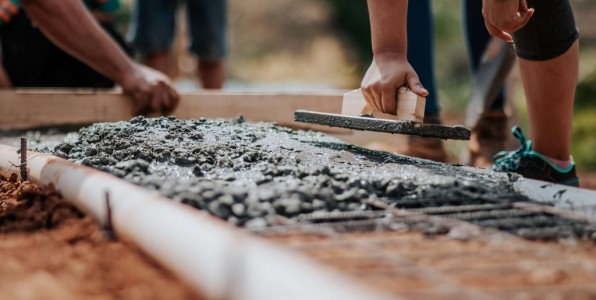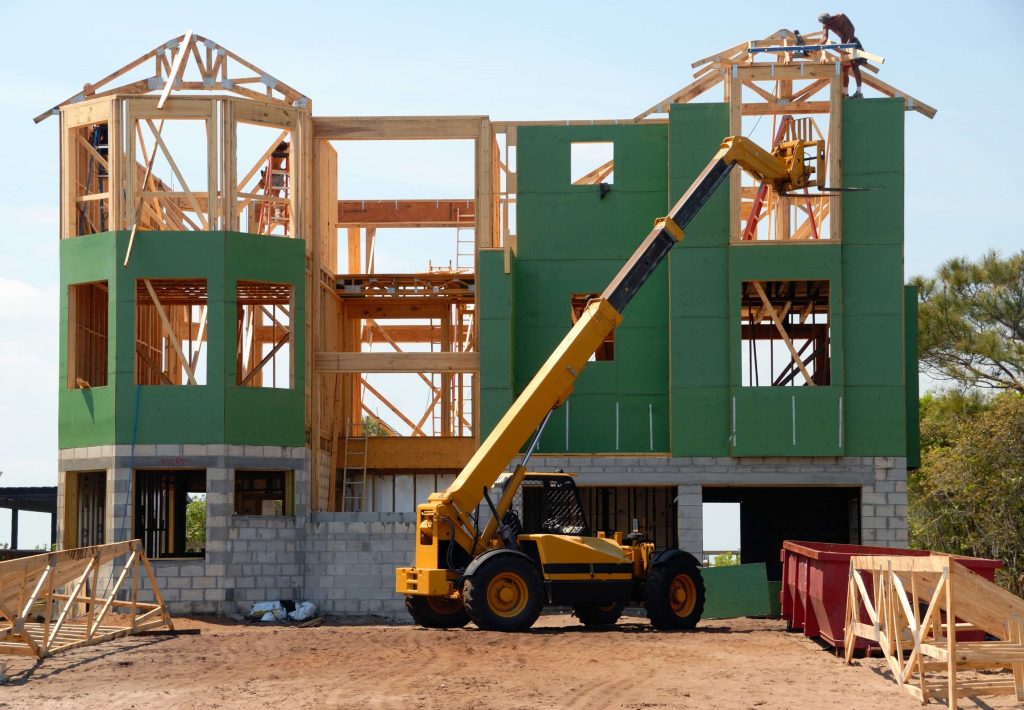Mistakes to avoid when building a house for the first time

Mistakes to avoid when building a house for the first time

Building a house for the first time can be a gruelling yet rewarding process. Whether you intend to live in it, rent it out or sell it on, you have the satisfaction of creating something that may stand for centuries, caters precisely to your tastes, and will enrich the lives of whoever goes on to live there.
However, building a house for the first time involves so many different elements and disciplines that it’s easy to make mistakes – even if you’re not the one holding the hammer. Here are some common errors made by first-time house builders, so you can avoid and diagnose them before they snowball into bigger problems.
Choosing the wrong builders
Unless you plan on doing all of the construction yourself, you’ll probably be enlisting the help of some builders. Depending on how you are going about your house build, this may take a few different forms. If you want the entire process to be managed by a construction company, you will likely be dealing with sales agents who will show you around model homes, and give you prices for the basics and upgrades. If you want to be more hands-on, you can take responsibility for things like sourcing materials, and hire people to bring you plans to life.
If you choose to go the sales agent route, you should explore as many options as possible, and get a sense of the prices involved. The level of detail that agents tend to go into when quoting prices often varies, with some being more upfront (and organised) than others. A good agent will be clear about how much upgrades cost above the ‘base price’ of the home, and which elements of the model home are upgrades. They will also provide costs in detail and explain the whole process in advance of the build.
If you intend to take more control of the project, it’s likely you’ll have building plans which you can use to obtain your own cost estimates, which can then be included in your tender to potential builders. In both cases, it’s wise to look at projects they’ve worked on before, get a sense of average prices in the area, and discuss your requirements with them in depth. Choose the wrong builder and fail to go through these processes, and you may end up with something that’s over-time, over budget and fails to live up to your plans.
Undervaluing cost estimation

The basis for any new house build is a detailed cost estimate. This process will take into account the materials and labour you plan to use as well as any ancillary costs, and give you both a breakdown of figures and an estimate of the time required to complete the build. This is often relied on as a roadmap for house builds, from laying the foundations to the finishing touches, and is something you can refer back to and even amend as the project proceeds.
The worst thing you can do is to ignore the importance of high-quality cost estimation, or recruit builders who do not make best use of it themselves. A reliable breakdown, which can be obtained swiftly via an online estimating service, will often save you far more money than the estimate itself costs, as it allows you to reliably source materials and labour using local price guides. This can be invaluable as a precursor to hiring builders, as it will give you a sense of what similar projects are supposed to cost, and allow you to avoid unfair estimates.
One of the biggest issues people encounter when building a house for the first time is that they run over-time, meaning that even though they may have the necessary materials, parts of the administrative process or setbacks on-site cost them more money in labour. A reliable cost estimate will help you to avoid this by factoring in potential delays, and easing the administrative burden by providing a detailed breakdown of all the materials and processes involved in the build.
Ignoring legal requirements
It’d be nice to think that you can just buy a plot of land, plonk a house down and be done with it. Unfortunately, the realities of modern construction are slightly more complex, and involve a lot more paperwork. Numerous authorities have to be involved somewhere in the planning and construction processes, and failing to consult with them all – and get permission to complete every part of your build – could lead to extra costs, and even demolition in the future.
If you’re managing the build yourself, the first thing you’ll need to consider is a soil survey. This isn’t so much a legal requirement as it is plain sensible. While your cost estimation may factor in standard foundations, it’s possible that your house will require a more complex solution. Your first port of call on this should be your council’s building control department, who will have experience with the local ground conditions. They will often ask to perform a free physical check to confirm that your plot is of the expected quality.
The next thing you will need to confirm is the legal status of your plot, and whether there are any passages through it that need to be maintained, such as easements or ancient rights of way (e.g. public footpaths). It’s also vital that you liaise with the local council on planning permissions, and submit your plans to a local planning officer. The former will normally require the services of a solicitor, while the latter will require you to work with architects to formalise and submit your plans.
You will also need to consider how to connect vital services such as water and power to your new property. It may be that they need to pass through someone else’s property to get to yours, in which case you will require a ‘way leave agreement’. Every service you connect to will have an associated cost, and it may be that you can only connect to them in certain places. To ascertain this, you should contact the lead water and energy providers in your area to discuss the build, and options to connect your new home (if you don’t know who they are, your building control officer should be able to help).
The mistakes you make when building a house for the first time can range from not factoring in roof tiles or paint jobs, to having to completely rebuild your roof because it’s taller than the specified limit. As with anything, quality planning is key – particularly keeping across your costs and timescales. By investing in quality cost estimation and communicating with all the relevant authorities at an early stage, you can avoid unwanted surprises, and build the dream home you always wanted.

___
This post was contributed by Oliver Wilcox, Estimating Director at Proquant – a leading UK provider of construction cost estimations online
Comments are closed